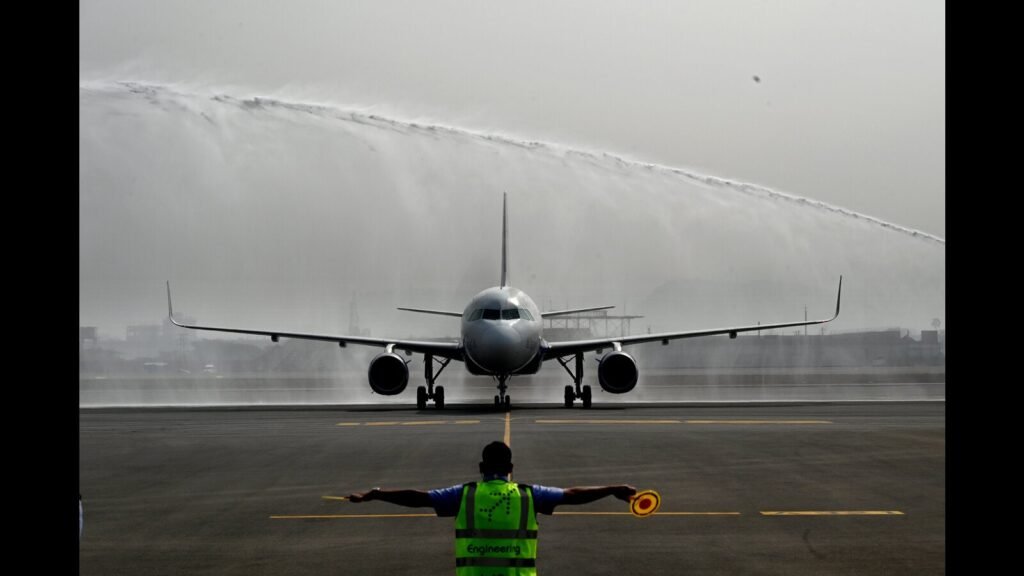
The low-fare revolution is now coming to bite the airline market. Let me elaborate. A report titled The Sky’s the Limitby a United States (US) Senate sub-committee on the airline industry’s practice of “unbundling” — as many charges as possible in a way that these auxiliary fees have become a critical revenue stream — criticizes carriers for levying new charges besides ticket price. . Be it seat preference, food, water, or check-in baggage, extra charges are being levied for virtually anything.

This strategy, known as unbundling, has spread to almost every airline. The so-called ancillary fees have become a vital revenue stream. According to the report, unbundling has “insidiously raised the cost of flying” for consumers, forcing them to pay to be seated next to their minor children or have carry-on luggage.
The report argues that US-based airlines like United, Delta, Spirit, Frontier and American Airlines have generated billions of dollars in revenue from ancillary fees while travelers confront increasingly complex fees, with fewer options for avoiding them, obscuring the total cost of travel. The report says that the five airlines collectively earned $12.4 billion in revenue from seat charges between 2018 and 2023 and that, in 2023, United earned $1.3 billion, more than the $1.2 billion it earned from carry-on baggage fees.
It is well known that low-fare airlines in India, too, have increasingly piled on similar ancillary charges on fliers.
Most recently, there was an uproar when airlines started charging for seat selection when one checks in through the web. Earlier, only seats that had extra space — such as the first row or emergency — were chargeable, but of late, IndiGo, and the others following its lead, have started charging. 450 and above for any aisle or window seat on the aircraft, leaving only middle seats to be assigned freely. In several cases, families with young children are told they will have to pay extra to be seated together — something that was taken for granted just a few years back. This has not gone down very well with passengers who have alleged that this is tantamount to fleecing.
Equally galling is the strategy of combining the sale of food and beverage items on board. On an IndiGo flight soon after the practice started, I was told I had to pay for a snack that I did not want when I asked to buy a Sprite. This amounts to complete coercion.
I learned from airline insiders that such measures are being looked upon as new revenue strategies that are delivering good results. Ancillary revenues for airlines such as IndiGo have been steadily rising — its auxiliary revenues have grown at a faster clip than its passenger ticket revenues. In 2023-24, ancillary revenues grew by 21% year-on-year, reaching a sizable 1,875 crore, and accounted for 2.6% of total revenue. Since India has no regulator, or rather, has only an inadequately equipped safety regulator, airlines are getting away with newer and more innovative charges.
The airlines argue that unbundling is being done in good faith, with the intention of offering the lowest possible fare to those who are indifferent or do not need any extras on their journey. So, if a passenger doesn’t care which seat he or she ends up sitting on and is indifferent to all the other small comforts on offer, he should pay a lower amount than those who seek these frills.
This strategy is not something new in the sector. As far back as 2005-06, low-fare airlines in India had started charging for water served on flights, by offering small mineral water bottles. This led to a massive uproar among fliers in India, and the Directorate General of Civil Aviation (the safety regulator) mandated that all airlines must serve water for free on flights (now served in paper cups that barely hold a single gulp of water). In 2005–06, airlines had also started levying a charge for wheelchair assistance, which was rescinded after the safety regulator intervened.
The question that arises is where the line is to be drawn on such practices. Although not yet a practice in India, many low-fare airlines around the world charge for checked-in baggage and every extra kilo is chargeable. If the airlines charge for every extra kilo carried on board, why shouldn’t a passenger’s body weight be taken into account? I can argue that the passenger sitting on the seat next to me weighs at least 25 kilograms more than me and should pay accordingly.
Let me end by reminding readers of the storm Ryanair chief executive officer Michael O’Leary kicked up some years ago, in his characteristically flamboyant style. Leary had said that he was considering charging passengers for the use of lavatories on his planes (pay-for-pee, as it was crassly termed) and elaborated in some detail on why he thinks it would be justified. Faced with loud protests, this did not come to pass then, but industry observers argue that the way things are going, Leary might have been prescient. With airlines in India and globally looking to squeeze any revenue they can out of a growing yet voiceless and hapless cohort, this ridiculous-sounding day may be closer than we think.
Anjuli Bhargava writes about governance,infrastructure and the social sector.The views expressed are personal







